
Iain Dale 10am - 1pm
10 August 2020, 10:38
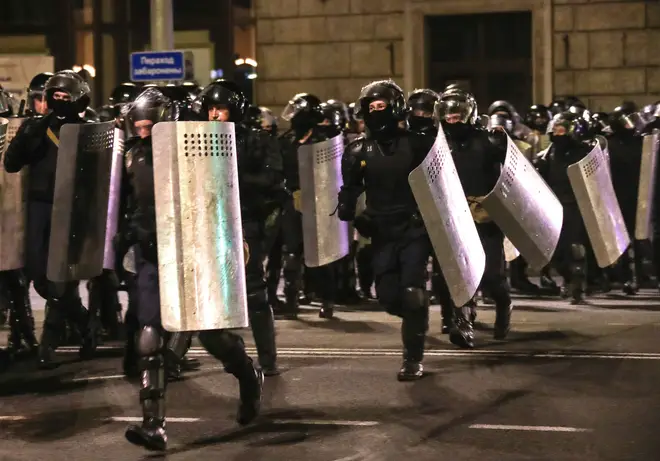
Belarus police and protesters have clashed after a presidential election in which the country's longtime leader sought a sixth term despite rising discontent with his authoritarian rule.
Police used stun grenades, rubber bullets and water cannon, with one human rights group saying a protester was killed and about 120 more arrested.
Preliminary results suggest that Alexander Lukashenko, who has ruled for 26 years, won the election with 80 per cent of the vote.
Partial results also show that Mr Lukashenko received more than 90 per cent of the vote in some districts.
Tensions have been rising for weeks ahead of Sunday's vote, which pitted Mr Lukashenko, who has held an iron grip on Belarus since 1994, against four others.
The campaign has generated the country's biggest opposition protests in years.
Opposition supporters say they suspect election officials will manipulate the results of the vote to give the 65-year-old Mr Lukashenko a sixth term.
Officials had already denied two prominent opposition challengers places on the ballot, jailing one on charges he called political and prompting the other to flee to Russia with his children.
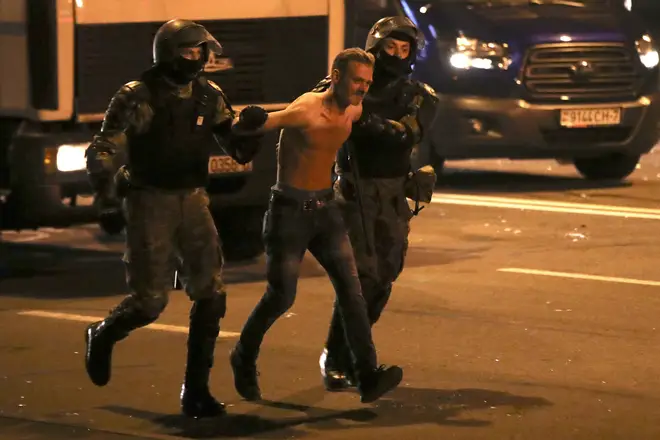
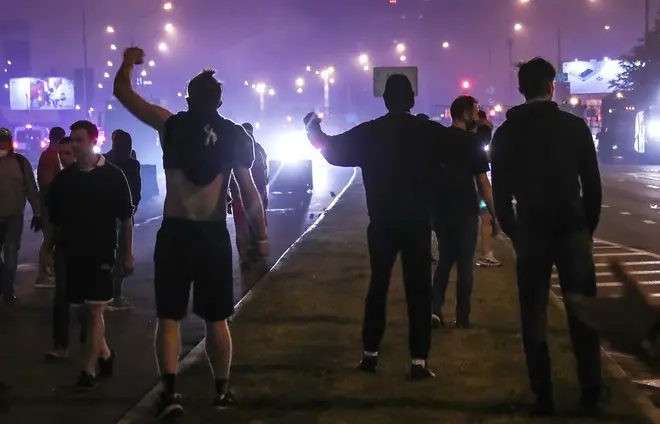
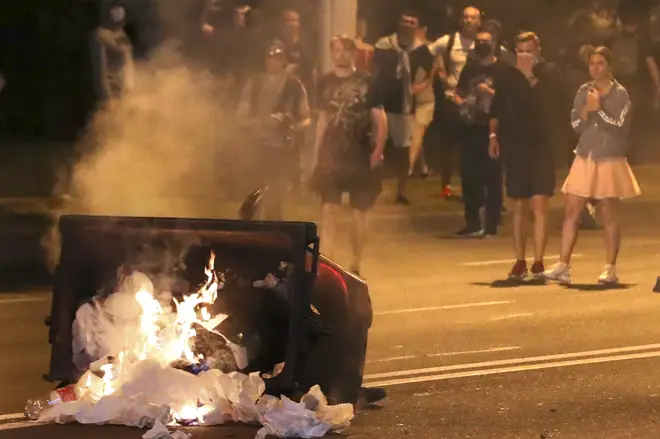
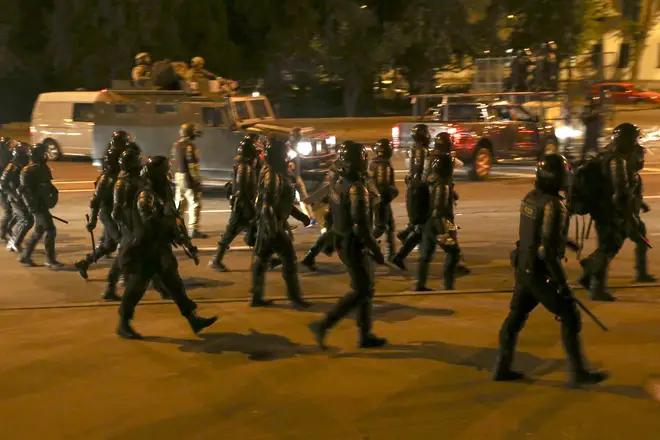
The main opposition candidate, Sviatlana Tsikhanouskaya, came under heavy pressure over the weekend as eight members of her staff were arrested, and one of her top aides fled the country on Sunday.
Belarusians weary of the country's deteriorating economy and Mr Lukashenko's repression of the opposition coalesced around Mrs Tsikhanouskaya, a former teacher and the wife of a jailed opposition blogger.
Police presence in the capital of Minsk was heavy throughout the day and in the evening police set up checkpoints on the city's perimeter to check residence permits, apparently worried that protesters would come from other cities.
Mr Lukashenko had vowed to crush any protests.
About 1,000 protesters gathered near the obelisk honouring Minsk as a World War II "hero city", where police harshly clashed with them, beating some with truncheons and later using flash-bang grenades to try to disperse them.
Protesters later tried to build barricades with trash containers.
Protests also broke out in the major cities of Brest, Gomel, Grodno and Vitebsk and police fired tear gas at the demonstrators in Brest, news reports said.
If you haven’t seen what’s happening in Belarus, look into it. This is Minsk tonight. The President/Dictator claims to have won 80% of the vote. Yet thousands and thousands are protesting, saying he stole the election. This is his response 👇🏻 pic.twitter.com/LHPL5lCdVw
— Joshua Potash (@JoshuaPotash) August 9, 2020
There was no official information on the number of arrests or people injured, but Ales Bilyatsky of the Viasna human rights group told The Associated Press that he believed there were several hundred arrests.
Three journalists from the independent Russian TV station Dozhd were detained earlier after interviewing an opposition figure and were expected to be deported.
An Associated Press journalist was beaten by police and treated at a hospital.
"What has happened is awful," Mrs Tsikhanouskaya said.
She also rejected exit polls that indicated an overwhelming win for Mr Lukashenko, saying "I will believe my own eyes - the majority was for us."
Mr Lukashenko himself was defiant as he voted earlier in the day.
"If you provoke, you will get the same answer," he said.
"Do you want to try to overthrow the government, break something, wound, offend, and expect me or someone to kneel in front of you and kiss them and the sand onto which you wandered? This will not happen."
Things are getting serious in Belarus. Protests against Lukashenko’s apparent rigging of the election across the country. Riot police using tear gas and stun grenades. A police wagon just drove into a crowd of protesters in Minsk. video from indispensable @tutby pic.twitter.com/1wR330QIq7
— max seddon (@maxseddon) August 9, 2020
Mindful of Belarus' long history of violent crackdowns on dissent - protesters were beaten after the 2010 election and six rival candidates arrested, three of whom were imprisoned for years - Mrs Tsikhanouskaya called for calm earlier on Sunday.
"I hope that everything will be peaceful and that the police will not use force," she said after voting.
As polls opened, the country's central elections commission said more than 40 per cent of the electorate had cast ballots in early voting, a figure likely to heighten concerns about the potential for manipulation.
The Organisation for Security and Cooperation in Europe, whose assessments of elections are widely regarded as authoritative, was not invited to send observers.
Mrs Tsikhanouskaya had crisscrossed the country, tapping into public frustration with Mr Lukashenko's swaggering response to the pandemic and the country's stagnating Soviet-style economy.
Belarus, a country of 9.5 million people, has reported more than 68,500 confirmed coronavirus cases and 580 deaths but critics have accused authorities of manipulating the figures to downplay the death toll.
Mr Lukashenko has dismissed the virus as "psychosis" and declined to order restrictions to block its spread.
He announced last month that he had been infected but had no symptoms and recovered quickly, allegedly thanks to doing sports.
He has defended his handling of the outbreak, saying that a lockdown would have doomed the nation's already weak economy.
Belarus has sustained a severe economic blow after its leading exports customer, Russia, went into a pandemic-induced recession and other foreign markets shrank.
Before the coronavirus, the country's state-controlled economy already had been stalled for years, stoking public frustration.